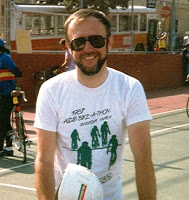I went to see my doctor the other day. In the course of our visit, I told him that I did not like a medication he put me on a year ago. The medicine seems to work OK in helping me keep my blood pressure at acceptable levels. But I told him I did not care for some of the side effects and I wondered if there was something else that didn’t have those side effects. There are, after all, a million blood pressure meds available.
Yes, of course, he said, here is something else you can take and handed me a new prescription. Great, I thought. I can get rid of those annoying problems. When I got the script filled, the pharmacist asked me if I’d used this med before. I explained to him that this was new to me to avoid the side effects of another med. Yes, he said, it will not give you those problems, but it will cause other side effects, like slowing your heart rate and you might get tired more easily.
But I get tired already, I thought. I don’t need a medication to enhance that. I went home and got on the computer and started Googling this med to see what else it might do that I should be warned about. Up popped a long list of side effects from fatigue to constipation to sleeplessness and about 20 other things I don’t really need help with. I stopped at “in rare cases, may cause an urge to suicide.” So, I guess I’ll stay away from railroad crossings and high bridges.
I sighed. It seemed I was just swapping one unpleasantry for another unpleasantry.
Why is it that medications produce only negative side effects? I want medication with positive side effects. Like these.
Imagine these warnings as part of the requirement for truth in labeling. This medication:
1. May cause a sunny disposition.
2. May enable you to laugh more—even at jokes that aren’t actually that funny.
3. Will enhance the taste of chocolate, especially with red wine, even the cheap stuff from Trader Joe’s.
4. Warning about operating a vehicle: When starting this medication, get in your car and drive. Go as far as you want.
5. Can cause a rash of good feeling toward others.
6. Can cause an itch to travel to exotic places where people wear less clothing.
7. Can make you laugh. If laughing lasts more than four hours, seek medical treatment immediately.
8. May stimulate an urge to listen to old Joan Baez records. Stop taking immediately if listening to Joan Baez for more than four hours.
9. Call your doctor if you notice a funny story to tell about your dog or cat.
10. In rare cases, can improve your tennis serve.
11. Can diminish your fear of Republicans.
12. Do take if you are pregnant, planning to become pregnant, or otherwise will be around children of any age.
13. May cause constipation—in people you don’t like.
14. May cause you to fall in love with the next person you see. Do not administer more than six doses in a 24-hour period.
15. May increase your need to eat banana cream pie.
16. May increase agility on the dance floor.
17. May decrease your urge to read a newspaper or watch the news on TV.
In rare cases, some users of this medication have reported that it actually worked. So, don’t go killing yourself.
© 22 April 2018
About the Author
Nicholas grew up in Cleveland, then grew up in San Francisco, and is now growing up in Denver. He retired from work with non-profits in 2009 and now bicycles, gardens, cooks, does yoga, writes stories, and loves to go out for coffee.

